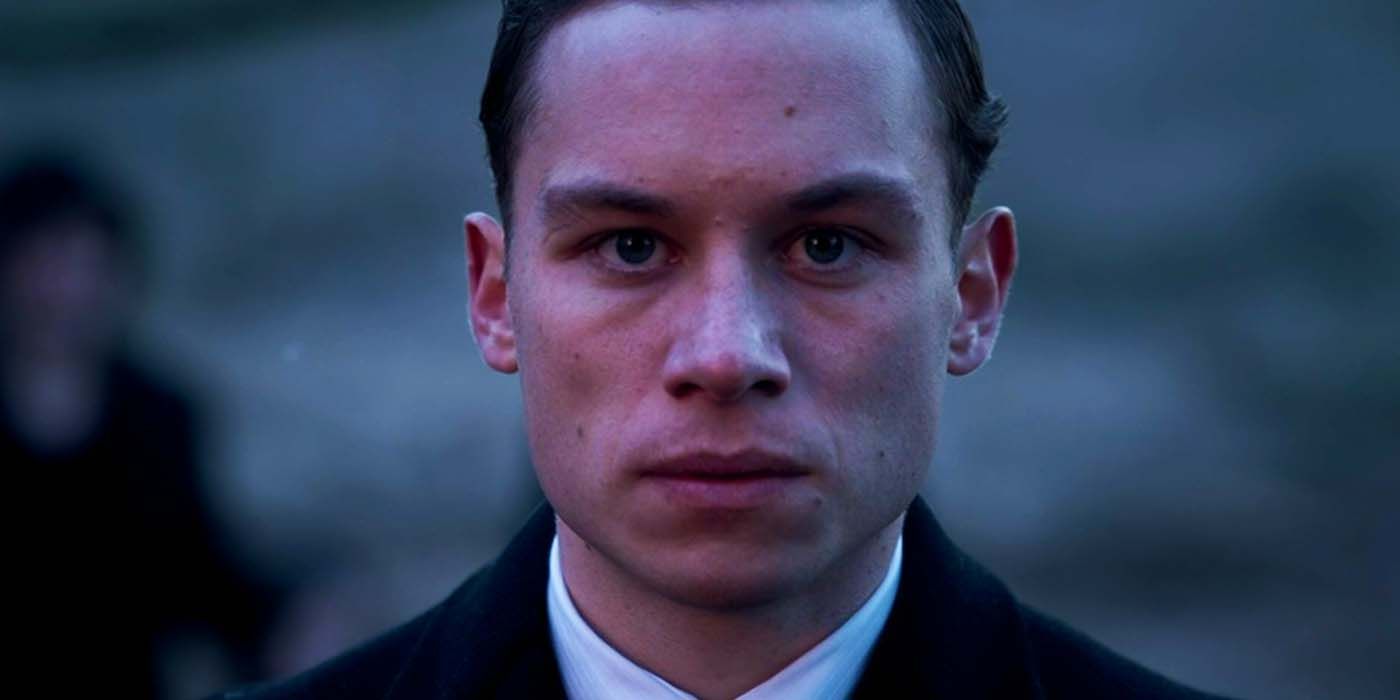Warning: This article contains spoilers for Peaky Blinders season 6, episode 1.
The first episode of Peaky Blinders season 6 might have already revealed its ending. The show picks up after the failed assassination of Oswald Mosley orchestrated by Tommy Shelby, which drove Tommy to a suicide attempt. The head of the Shelby clan was losing his grip, made worse by the bodies returned to him, which turned out to be Aberama Gold, his son Barney, and Tommy’s beloved Aunt Polly. The show then skips to four years later, and Tommy has seemingly regained his calm, comprehensive state after the horror unearthed at the beginning of the episode.
In this period four years later, Tommy is meeting with Michael and his associates after not speaking to his cousin since the death of Polly. Michael blames his mother’s death on Tommy’s ambition and swore at her funeral to take revenge on him, and Tommy doesn’t trust him in return due to Michael’s attempt to take his place as the head of the family. Though Peaky Blinders has established a significant conflict between them, they meet to discuss alternate trade strategies under the impression that they are solely doing business and putting their individual feelings aside. Tommy’s flowery language during the meeting results in Michael and his gang, associates of Jack Nelson, mocking him, and then jokingly asking him for a poem. Tommy chooses to recite the first stanza of ”A Poison Tree” by William Blake, and this specific poem suggests that the war between them is in full swing, and season 6 won’t end well for Michael.
The poem Tommy recites concerns the speaker’s wrath with their ”foe” and it ends with their death, which can only point to Michael losing the war between them, and his probable demise. Blake’s poem focuses on vengeance, where the speaker turns the wrath for their foe into something tangible; a poison apple. The speaker nurtures the apple to grow big, knowing that his foe would steal into his garden to eat the apple. The poison apple kills the foe, much to the delight of the speaker. Though it’s theorized that Tommy will die, he is the one reciting the poem, which puts him in control as the role of the speaker and ultimately seals Michael’s Peaky Blinders season 6 fate as the doomed foe.

Tommy’s choice of poem is no coincidence. A key part of it is the speaker’s patient and clever approach to vengeance in order to trick the less intelligent foe into his own demise. The speaker nurtures the apple with ”soft deceitful wiles,” which is exactly what Tommy does to Michael. He lures him in under the guise of trade partnership, hands him the opium (symbolically, the apple) which Michael jumps at, and then tips off the police which lands Michael in jail. More so, Michael would perhaps have been wary of this entire plot if he had only listened to Blake’s poem, instead of patronizingly applauding Tommy’s recital. Michael has been a big character in the Peaky Blinders cast for some time, and Tommy knows that he has always been too headstrong and proud to listen to him and therefore wouldn’t heed his warning poem. Thus, in the same way that the ”foe” causes his own death, it’s Michael’s ignorance and arrogance that lands him in jail, and could likely result in him succumbing to the same deathly fate. Tommy knows the guards of the prison and has said they can look after Michael, but Tommy can also order them to turn on him if he sees fit. After all, the poem predicts that it is him that will put Michael in the ground for good.
Tommy and Michael’s power struggle seems to be playing out exactly as the late Polly had predicted; that there will be a war and one of them will die. Tommy’s choice of poem, ”A Poison Tree,” has already predicted his actions in the first episode, and so likely anticipates Michael’s ruin as season 6’s ending. Peaky Blinders has shown that Tommy isn’t afraid to get rid of anybody who stands in his way, and his poem foresees his victory.




